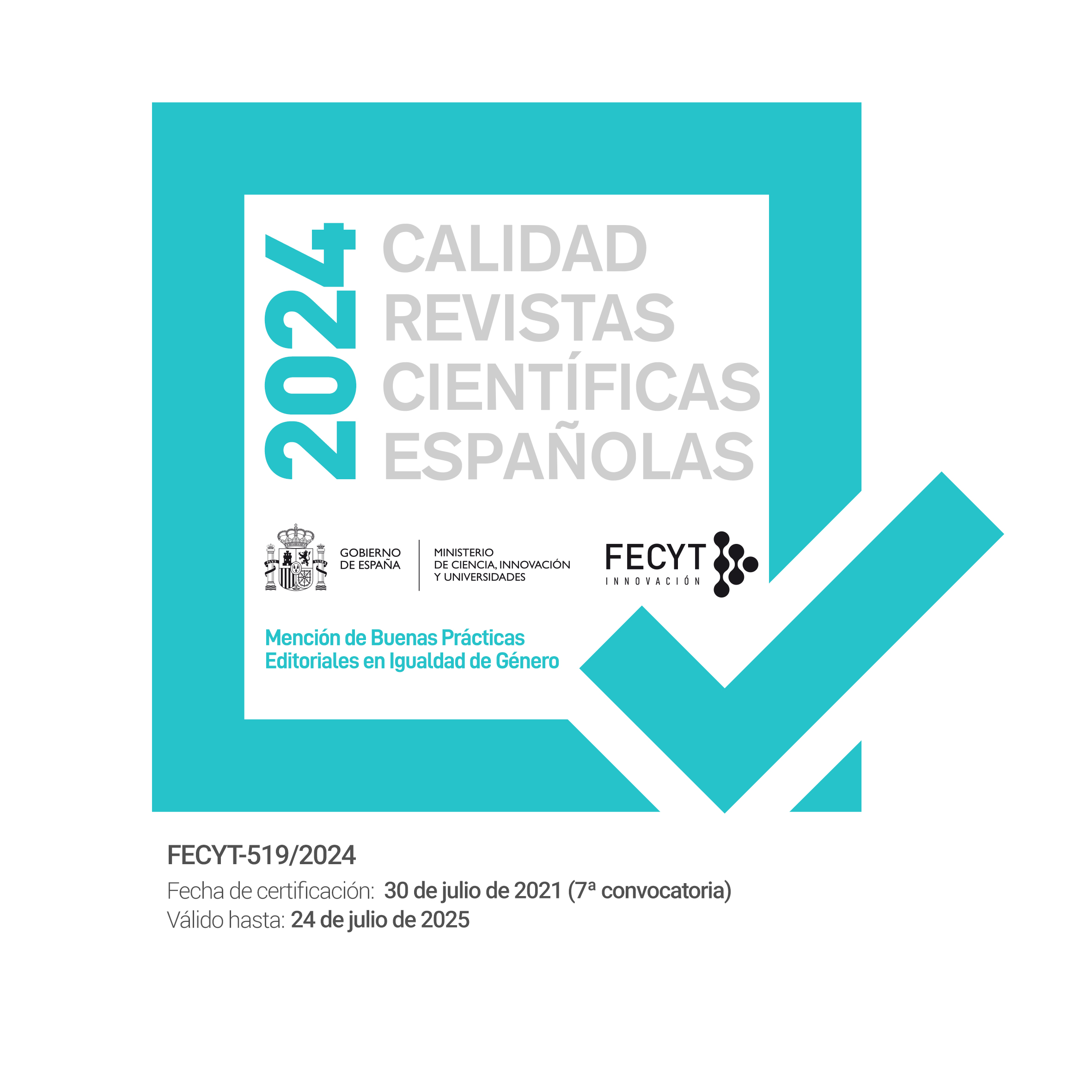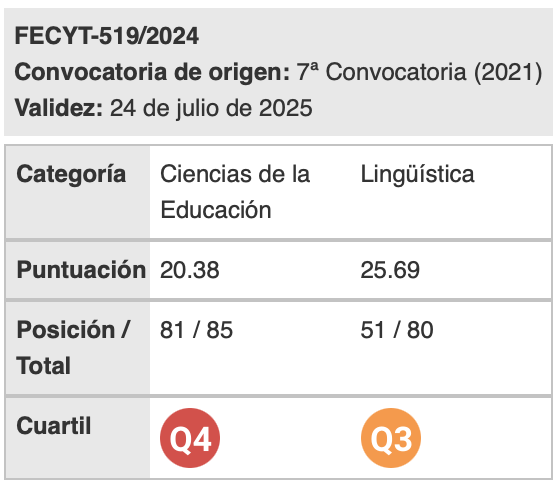Book Review: Camilla Vásquez (2014). The Discourse of Online Consumer Reviews. London and New York: Bloomsbury Academic, pp. 194, 9781441196286
Palabras clave:
languages for specific purposes, linguistics, applied linguistics, specialised discourse, discourse studiesResumen
Consumers’ need to rate and review products, services or businesses online has led to a massive burgeoning of online reviews over the last decade, giving rise to a new computer-mediated communicative genre that has attracted the attention of many scholars. However, most research on computer-generated communication has revolved around the fields of marketing, business or computer sciences (Ganu et al., 2010; Hu et al., 2012; Jo & Oh, 2011), leaving the linguistic and discourse perspectives unexplored. Thus, Camilla Vásquez’s book fills this gap by presenting a thorough analysis of the common language and discourse features used in online consumer reviews.Descargas
Citas
Davis, K. (2012). ‘Tensions of identity in a networked era: Young people’s perspectives on the risks and rewards of online self-expression’. New Media & Society, 14(4), 634-651.
Ganu, G., Marian, A. & Elhadad, N. (2010). ‘Ursa- User review structure analysis: understanding online reviewing trends’. DCS technical report nº. 668 <http://spidr-ursa.rutgers.edu/resources/TR_LRE.pdf> [22-12-2016].
Hu, N., Bose, I., Koh, N. S. & Liu, L. (2012). ‘Manipulation of online reviews: An analysis of rating, readability, and sentiments’. Decision Support Systems, 52(3), 674-684.
Jo, Y. & Oh, A. (2011). ‘Aspect and Sentiment Unification Model for Online Review Analysis’. Proceedings of ACM Conference on Web Search and Data Mining (WSDM-2011). <http://uilab.kaist.ac.kr/research/WSDM11/wsdm400-jo.pdf> [21-12-2016].
Labov, W. (1972). Language in the Inner City: Studies in the Black English Vernacular. Philadelphia: University of Pennsylvannia Press.
Litt, E. & Hargittai, E. (2016). ‘The Imagined Audience on Social Network Sites’. Social Media + Society, 2(1), 1-12.
Ochs, E. & Capps, L. (2001). Living Narrative. Cambridge. MA: Harvard University Press.
Walther, J. B., Liang, Y. J., DeAndrea, D. C., Tong, S. T., Carr, C. T., Spottswood, E. L. & Amichai-Hamburger, Y. (2011). ‘The Effect of Feedback on Identity Shift in Computer-Mediated Communication’. Media Psychology, 14(1), 1-26.
Descargas
Publicado
Cómo citar
Número
Sección
Licencia
Aquellos autores/as que tengan publicaciones con esta revista, aceptan los términos siguientes:
- Los autores/as conservarán sus derechos de autor y garantizarán a la revista el derecho de primera publicación de su obra, el cuál estará simultáneamente sujeto a la Licencia de reconocimiento de Creative Commons que permite a terceros compartir la obra siempre que se indique su autor y su primera publicación esta revista.
- Los autores/as podrán adoptar otros acuerdos de licencia no exclusiva de distribución de la versión de la obra publicada (p. ej.: depositarla en un archivo telemático institucional o publicarla en un volumen monográfico) siempre que se indique la publicación inicial en esta revista.
- Se permite y recomienda a los autores/as difundir su obra a través de Internet (p. ej.: en archivos telemáticos institucionales o en su página web) antes y durante el proceso de envío, lo cual puede producir intercambios interesantes y aumentar las citas de la obra publicada. (Véase El efecto del acceso abierto).

Revista de Lenguas para fines específicos is licensed under a Creative Commons Reconocimiento-NoComercial-SinObraDerivada 4.0 Internacional License.






















